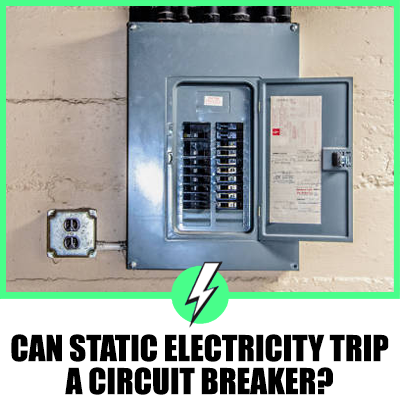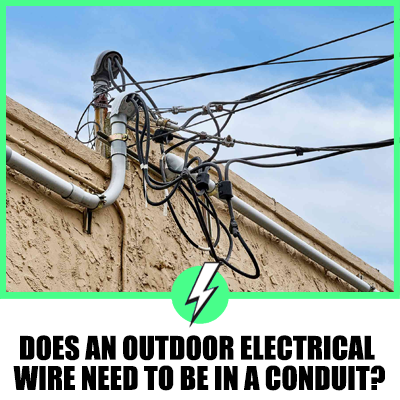Can Static Electricity Trip a Circuit Breaker?
Static electricity.
It’s a common phenomenon experienced by many, especially during the dry winter months.
It’s a charge imbalance in dry materials.
It can result in powerful shocks if a damaged or unmonitored electrical current or flammable substance is nearby.
But can this static electricity trip a circuit breaker?
This question has intrigued many homeowners and electricians alike, both in the UK and the US.
Let’s delve into this topic.

Contents
Understanding Static Electricity
Before we answer the main question, it’s crucial to understand what static electricity is.
When two objects come into contact, there’s a transfer of electrons, leading to an imbalance of charge.
This imbalance results in one object gaining a positive charge while the other gets a negative charge.
The shock you feel when touching a doorknob or another person after walking on a carpet is a discharge of this static electricity.
Can Static Electricity Cause GFCI to Trip?
Ground Fault Circuit Interrupter (GFCI) is a safety device designed to protect people from electrical shock.
It is sensitive to the flow of current and can trip when there is an imbalance.
Static electricity, which is a buildup of electric charge on an object, can cause a GFCI to trip.
This is because the GFCI detects the imbalance in the electrical current caused by the static electricity and shuts off the circuit.
This feature is particularly important in areas with high moisture, such as bathrooms and kitchens, where the risk of electric shock is higher.
Does Static Electricity Flow Through a Circuit?
Unlike current electricity, which flows through a conductor, static electricity doesn’t flow.
It is stationary or ‘static’ and remains in one place until it is discharged.
However, if one built up a sufficient static charge on their body and touched a light switch, they could potentially trip the circuit breakers in their house.
This is because the static electricity discharge can create a sudden surge of electricity that can overload the circuit breaker.
Why Does My Circuit Breaker Start Tripping Suddenly?
A circuit breaker can start tripping suddenly due to several reasons.
One of the most common reasons is an overloaded circuit.
If you’re using multiple high-powered devices on the same circuit at the same time, you’re probably just using more power than the circuit is designed to handle.
This is a common issue in households during the holiday season when additional lighting and heating devices are in use.
Other reasons can include a short circuit, a ground fault, or even a faulty circuit breaker.
In some cases, static electricity can also cause a breaker to trip.
However, it’s important to note that this is not a common occurrence and usually requires a significant amount of static electricity.
What are the 5 Examples of Static Electricity?
- Lightning: The most dramatic example of static electricity is lightning. During a thunderstorm, an imbalance of electrical charge in the clouds can cause a discharge of static electricity known as lightning.
- Static cling: When clothes are rubbed together in a dryer, they can become statically charged and stick together. This is a common issue during the dry winter months.
- Hair standing on end: When you take off a woolen hat, your hair might stand on end due to static electricity.
- Shock from a doorknob: On a dry day, you might get a shock from a doorknob after walking across a carpet due to static electricity.
- Balloon sticking to a wall: After rubbing a balloon on your hair, it can stick to a wall due to static electricity.
Insights from Online Discussions
Online discussions reveal that static electricity can indeed trip a circuit breaker.
However, this is not a common occurrence and usually requires a significant amount of static electricity.
In most cases, circuit breakers trip due to other reasons such as overloaded circuits, short circuits, or ground faults.
In conclusion, while static electricity can trip a circuit breaker, it is not a common cause.
It’s always a good idea to consult with a professional if your circuit breaker is frequently tripping to ensure there are no serious electrical problems in your home.
This advice holds true whether you’re living in the rainy climate of the UK or the diverse weather conditions of the US.





